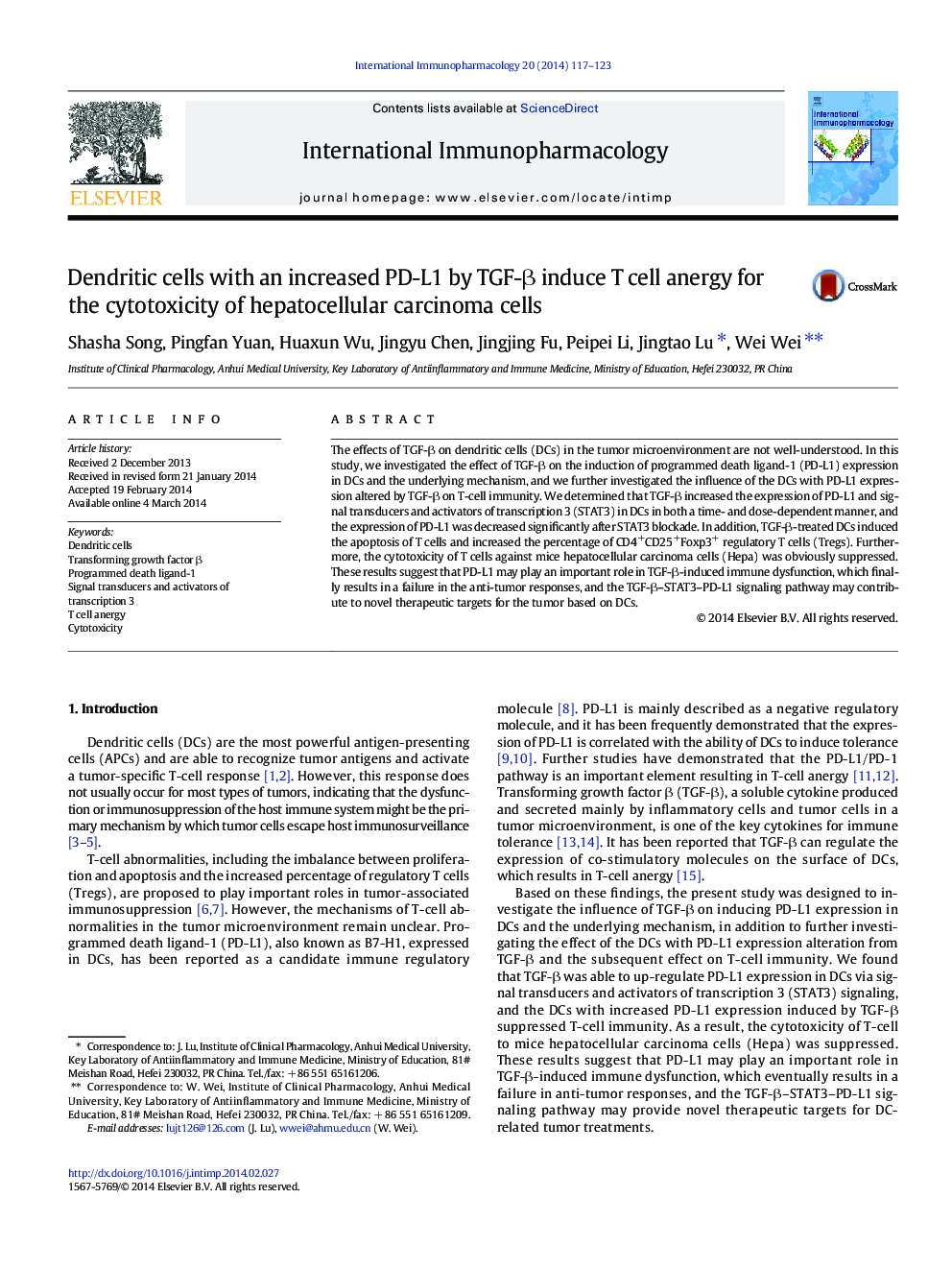| کد مقاله | کد نشریه | سال انتشار | مقاله انگلیسی | نسخه تمام متن |
|---|---|---|---|---|
| 5832817 | 1122610 | 2014 | 7 صفحه PDF | دانلود رایگان |

- TGF-β induced PD-L1 expression on DCs via STAT3 signaling.
- DCs with the increased PD-L1 induced T cell anergy.
- Cytotoxicity of T cells for HCC cells was suppressed by the TGF-β-STAT3-PD-L1 signaling.
The effects of TGF-β on dendritic cells (DCs) in the tumor microenvironment are not well-understood. In this study, we investigated the effect of TGF-β on the induction of programmed death ligand-1 (PD-L1) expression in DCs and the underlying mechanism, and we further investigated the influence of the DCs with PD-L1 expression altered by TGF-β on T-cell immunity. We determined that TGF-β increased the expression of PD-L1 and signal transducers and activators of transcription 3 (STAT3) in DCs in both a time- and dose-dependent manner, and the expression of PD-L1 was decreased significantly after STAT3 blockade. In addition, TGF-β-treated DCs induced the apoptosis of T cells and increased the percentage of CD4+CD25+Foxp3+ regulatory T cells (Tregs). Furthermore, the cytotoxicity of T cells against mice hepatocellular carcinoma cells (Hepa) was obviously suppressed. These results suggest that PD-L1 may play an important role in TGF-β-induced immune dysfunction, which finally results in a failure in the anti-tumor responses, and the TGF-β-STAT3-PD-L1 signaling pathway may contribute to novel therapeutic targets for the tumor based on DCs.
Journal: International Immunopharmacology - Volume 20, Issue 1, May 2014, Pages 117-123